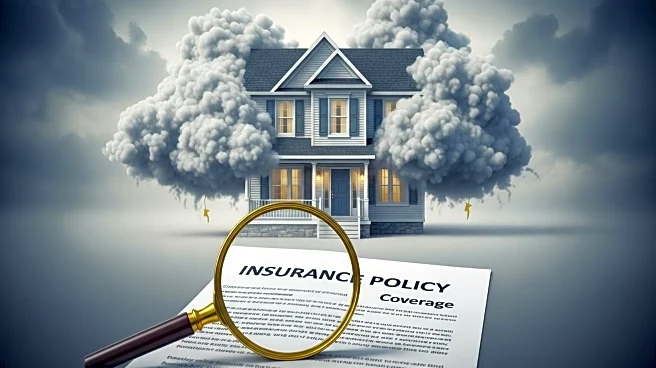What's Happening?
A recent survey by Realtor.com highlights significant concerns among U.S. homebuyers regarding the affordability of homeowners insurance. The survey indicates that 75% of recent and prospective homebuyers fear that insurance could become unaffordable due to increasing climate risks. With $12.7 trillion worth of U.S. homes exposed to severe climate threats, nearly half of the respondents have faced or expect to face challenges in obtaining or renewing insurance. The survey also reveals that 88% anticipate higher insurance costs in the future, and 42% have already experienced increased premiums. As a result, 58% of homebuyers are considering forgoing insurance if costs rise too high, a sentiment particularly strong among Gen Z buyers.
Why It's Important?
The findings underscore a growing financial strain on homeowners, particularly in areas prone to climate-related disasters such as floods, wildfires, and hurricanes. Rising insurance costs could lead to significant changes in the housing market, as buyers may alter their home search strategies or even forgo insurance altogether, increasing their financial vulnerability. This trend could also impact mortgage lenders, as insurance is typically a requirement for home loans. The potential for unaffordable insurance poses a risk to the stability of the housing market and highlights the need for policy interventions to address climate risks and insurance affordability.
What's Next?
As insurance costs continue to rise, homebuyers may increasingly seek properties in areas with lower climate risks, potentially reshaping real estate markets. Policymakers and insurers may need to develop strategies to mitigate these risks and ensure insurance remains accessible. This could involve revising building codes, investing in climate resilience, or offering subsidies for insurance in high-risk areas. The survey suggests a need for increased awareness and action among homebuyers, with only 30% currently considering natural disaster risk data in their home searches.








